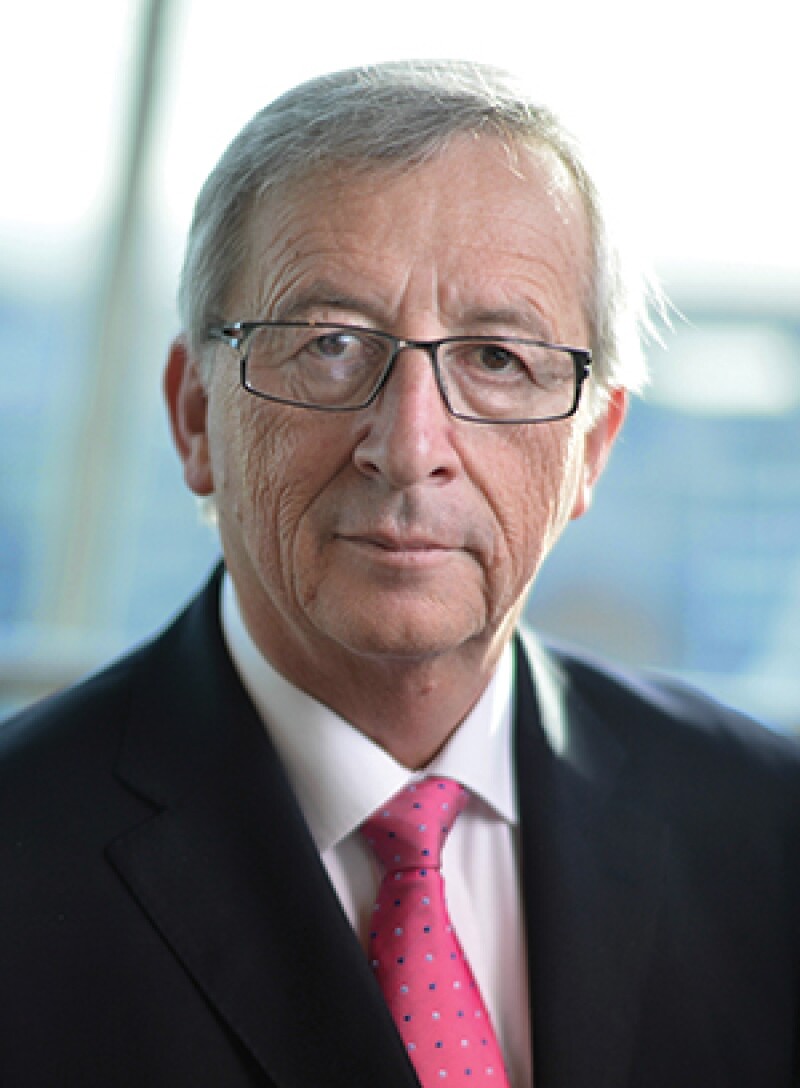
|
Jean-Claude Juncker was also in the Global Tax 50 2015, and 2014 |
Jean-Claude Juncker has remained in the Global Tax 50 for the third year running, but he has not managed to reclaim the top spot from EU Competition Commissioner Margarethe Vestager.
Some could say that Juncker has had a slightly calmer year, compared to the grilling and criticism he faced in the past few years over tax deals negotiated with multinationals by Luxembourg when he was the country's Prime Minister from 1995 to 2013. However, controversy has not escaped him entirely, as he has been exposed to several political gaffes involving China, Russia and a reporter who asked the "wrong" question.
Luckily for the embattled Luxembourgish EU President, he has managed to retain his position.
He has been an important person in representing the EU while the UK prepares to negotiate its exit and has been continuously pushing the UK to act quickly and trigger Article 50.
On EU policies, Juncker has been part of some of the most significant tax measures that have been proposed and adopted. This year, the Economic and Financial Affairs Council (Ecofin) adopted the Commission's proposed Anti-tax Avoidance Directive, which will be transposed by member states into domestic law and enter into force on January 1 2019. In addition, revised proposals for a common consolidated corporate tax base (CCCTB) were unveiled in October, but the measures have not been welcomed by all member states, creating debate.
At the opening of the 2016 G20 Summit in China, Juncker also encouraged the continued collaboration of international partners and the EU on building a corporate tax system that is efficient and fair. "Together we promote these principles at the international level, including at the G20. This year the Commission presented new legislative proposals to combat tax avoidance, and to oblige multinational companies to publish country-by-country reports on their profit and tax," Juncker said.
For Juncker, the past year has been focused on transparency initiatives and inclusive developments, but controversial tax practices have continued to haunt him, particularly over his involvement in Amazon's tax strategy because of unaccounted meetings with Amazon when he was the Prime Minister of Luxembourg. In a 23-page letter, the European Commission outlined preliminary conclusions from its probe into the tax rulings between Luxembourg and the multinational and Amazon's transfer pricing arrangements in the country. The EC has not yet settled the 2003 Amazon ruling, and is still determining the whereabouts of a 'misplaced' transfer pricing report.
Separately, when the Panama Papers were released in April 2016, Politico questioned Juncker's potential involvement as "worrying". The frequency and number of allegations has warranted the scepticism, especially considering his term as Luxembourg's finance minister from July 1989 to 2009 and, overlapping, as prime minister from January 1995 to December 2013.
However, it is not all bad news for Juncker. On October 25, he unveiled the European Commission's roadmap for 2017. It contained 21 key initiatives to deliver an EU that "protects, empowers and defends", including a proposal for a major corporate tax reform. One of the 10 most important areas was the proposal to build a deeper and fairer internal market from the implementation of the single market strategy, capital markets union action plan and to make proposals for fairer taxation of companies. A part of this will be the consideration of a CCCTB, improved mechanisms to resolve double taxation disputes, and measures to tackle loopholes with non-EU countries. Juncker has vowed to focus on anti-tax avoidance initiatives. His direction as head of the Commission has meant that fairer taxation has stayed at the top of the agenda and will continue to do so with this roadmap for the year ahead.
Despite his efforts to improve his battered reputation, Juncker faces a vote of no confidence in the European Parliament after anti-corruption campaigner and former Global Tax 50 entrant Eva Joly launched an assault on his "controversial past". On October 20, Joly accused Juncker of being involved in favouring certain multinational enterprises for 'sweetheart tax deals'. Joly, from the European Green Party, said: "Everyone knows that this system was built while he was prime minister. It is a scandal that he leads the Commission. We, the Greens, we do not want it."
But this isn't Juncker's first rodeo. On November 27 2014, Juncker comfortably survived a no confidence vote over the LuxLeaks revelations.
Looking ahead, Juncker remains on shaky ground as the President of the EC. Many will watch his progress in international tax matters to see whether Juncker can overcome his toxic image. Should Joly table a motion, the EU will have to decide whether its work in fighting for tax transparency is undermined by having Juncker as President of its Commission.
The Global Tax 50 2016 |
|
|---|---|
The top 10 • Ranked in order of influence |
|
2. The International Consortium of Investigative Journalists |
|
3. Brexit |
4. Arun Jaitley |
5. Jacob Lew |
|
10. Donald Trump |
|
The remaining 40 • In alphabetic order |
|









